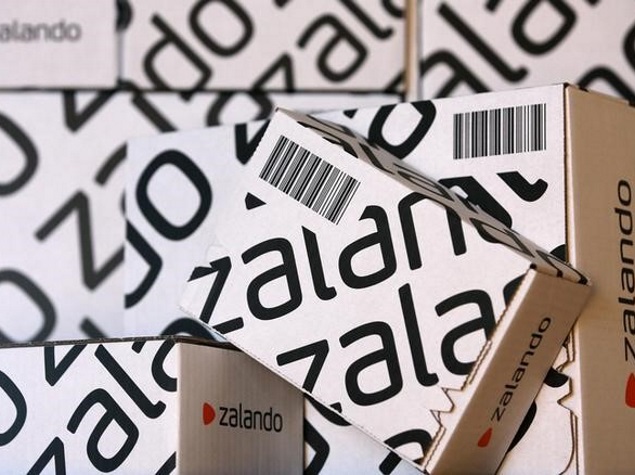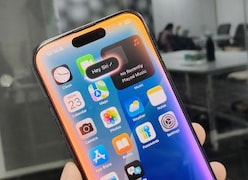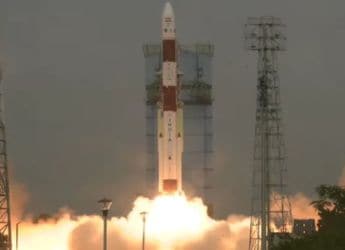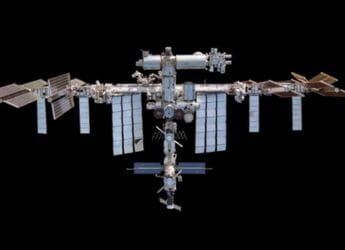- Home
- Internet
- Internet News
- Rocket Internet Draws Big Investor Crowd for Emerging Market Web Plan
Rocket Internet Draws Big Investor Crowd for Emerging Market Web Plan

The German company is riding the coattails of last week's successful listing by Chinese rival Alibaba and on Tuesday said it was doubling the amount of money it planned to raise in its share sale to 1.48 billion euros ($1.9 billion).
Founded in 2007 by brothers Oliver, Alexander and Marc Samwer, Rocket Internet has set up e-commerce sites and online marketplaces for everything from taxis to meal deliveries in more than 100 countries. Its companies made about $1 billion in revenues last year.
However, chief executive and co-founder Oliver Samwer on Wednesday said Rocket Internet aimed to reinvent itself through the initial public offering (IPO) financing, saying it will turn itself into an operating company from its prior role as an incubator for start-up firms.
"Rocket is not an investor. Rocket is an operating company," he told a news conference for the IPO which is set to begin trading in Frankfurt on Oct. 9.
Instead of simply fattening up its stable of start-ups for eventual sale, Samwer said the company would now focus on building and operating the companies under the Rocket umbrella, and seek to retain majority control of the assets they create.
"We will finance our companies significantly longer," Samwer said. "Previously, we could only support them in an early phase as we didn't have enough money," forcing it to seek early exits.
Rocket's flotation follows the surging demand for the listing of Alibaba shares, which shot up 38 percent in its debut last Friday, and next week's listing of Zalando, a European fashion site that Rocket helped to found.
The two flotations are set to be Germany's biggest technology listings since the bursting of the dot.com bubble a decade ago, and will make billionaires of the Samwer brothers, who own 52.3 percent of Rocket stock and a stake in Zalando.
The pricing of the shares could value Rocket at up to 6.7 billion euros ($8.6 billion).
The Rocket group's own revenues, which until now it made largely by charging consultancy fees to the companies it set up, rose 43 percent to 47 million euros in the first half of 2014, while it made a net loss of 13.3 million as expenses rose.
The long road
At every opportunity, Samwer underscored his drive to replicate the success of Amazon.com Inc and Alibaba in markets that the U.S. and Chinese groups have yet to dominate such as Africa, Latin America, Russia and other parts of Asia.
"Our target is to be the leading Internet platform outside the U.S. and China one day. Rocket's best time is yet to come," said Samwer.
Samwer's ambitious strategy is to dominate ecommerce business in many emerging markets by partnering with local telecom and logistics companies to be the first to create the necessary infrastructure to allow online shopping via phones.
However, the company faces daunting logistical challenges and rising local competition.
He argues this hybrid ecommerce-emerging markets approach will provide his company with barriers to entry against Internet-only companies that try to follow Rocket's lead.
"Ecommerce is 50 percent digital and 50 percent physical," Samwer said of his bid to reach shoppers in more than 100 countries with the basic elements to enable a functioning consumer market.
One major German fund investor said he bought the idea. "If you want to make money in ecommerce, you have to have a superior infrastructure," said the investor, who declined to be named. "The jury is out as to whether the strategy will be successful."
A second investor, Michael Muders, a portfolio manager with Union Investment, said investors in the company were not looking for conventional Deutshland AG stock. "Rocket has a business model that hasn't existed anywhere else, up to now," he said.
"You have to believe in the concept, and in the potential of emerging markets, and in the fact that online shopping grows further," Muders said of the set of risks involved.
Rocket, which previously had only released minimal financial details, said in its IPO filing that its top 11 ventures, such as Russian fashion site Lamoda and Indian online store Jabong, produced aggregate net losses of 442 million euros in 2013.
Samwer was adamant that, as an operating company, Rocket could transform its financial prospects.
"Every one of our companies has a clear path to profitability," he told reporters.
He said Rocket aimed to retain majority control in its businesses over the longer term, but did not rule out further IPOs of existing businesses in order to accrue further capital to fund its global plans.
"It may be that some of our larger companies might also list over time," he said. Possible IPO candidates include online home furnishing retailers Westwing and Home24.
Rocket claims it can launch a company within 100 days by drawing on expertise at its Berlin head office in areas such as finance, communications, marketing and business intelligence, helping it start from three to six new business lines a year.
While initially, the shareholder base will be drawn entirely from institutional investors and wealthy individuals, Samwer said he viewed Rocket Internet as appropriate for retail investors with patience.
"Our markets are still developing," he said in response to a question by Reuters. "They will have to wait for them to develop. So our share is suitable for every shareholder that has a long-term investment horizon."
© Thomson Reuters 2014
Catch the latest from the Consumer Electronics Show on Gadgets 360, at our CES 2026 hub.
Related Stories
- Samsung Galaxy Unpacked 2025
- ChatGPT
- Redmi Note 14 Pro+
- iPhone 16
- Apple Vision Pro
- Oneplus 12
- OnePlus Nord CE 3 Lite 5G
- iPhone 13
- Xiaomi 14 Pro
- Oppo Find N3
- Tecno Spark Go (2023)
- Realme V30
- Best Phones Under 25000
- Samsung Galaxy S24 Series
- Cryptocurrency
- iQoo 12
- Samsung Galaxy S24 Ultra
- Giottus
- Samsung Galaxy Z Flip 5
- Apple 'Scary Fast'
- Housefull 5
- GoPro Hero 12 Black Review
- Invincible Season 2
- JioGlass
- HD Ready TV
- Laptop Under 50000
- Smartwatch Under 10000
- Latest Mobile Phones
- Compare Phones
- Vivo Y500i
- OnePlus Turbo 6V
- OnePlus Turbo 6
- Itel Zeno 20 Max
- OPPO Reno 15 Pro Mini 5G
- Poco M8 Pro 5G
- Motorola Signature
- Vivo Y50e 5G
- Lenovo Yoga Slim 7x (2025)
- Lenovo Yoga Slim 7a
- Realme Pad 3
- OPPO Pad Air 5
- Xiaomi Watch 5
- Huawei Watch 10th Anniversary Edition
- Acerpure Nitro Z Series 100-inch QLED TV
- Samsung 43 Inch LED Ultra HD (4K) Smart TV (UA43UE81AFULXL)
- Asus ROG Ally
- Nintendo Switch Lite
- Haier 1.6 Ton 5 Star Inverter Split AC (HSU19G-MZAID5BN-INV)
- Haier 1.6 Ton 5 Star Inverter Split AC (HSU19G-MZAIM5BN-INV)

















